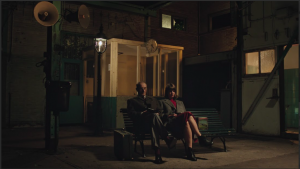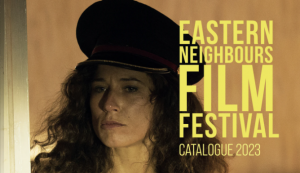Memory in Cinema

(El Shatt – A Blueprint for Utopia 2023)
Film is a medium defined by its relationship with memory. The audience is always aware that what it sees on screen was recorded in the past and edited in retrospect. In many ways, every film is a reminiscence, with the filmmaker and editor taking on the role of our subconscious as they select, focus, and edit images. “Cinema, like our memory, travels through time, reliving moments from the past with limitless possibilities,” says Hungarian philosopher and aesthetician Georg Lukacs. According to him, “cinema copies the selective encoding process of our memory onto the screen as a director and editor compose the images and scenes into a full-length film.” When we immerse ourselves in the stories of contemporary films, our memories often force us to think about our situation in the here and now, and even about the future.
We look at dealing with memory in film from different angles. For example, memories that are projected but not present, or memories from a personal or collective recollection through archive material. Memory is not just about the past but also about interaction with the present, which can consciously or unconsciously influence our view of the future. How do we anticipate the future by, for instance, being confronted daily with the constant horrors of the war in Ukraine? What will the story of Europe be in thirty or more years?
This program comprises feature films, documentaries, and animated films from six countries.
In The Happiest Man in the World (North Macedonia, Teona Strugar Mitevska, 2022), which premiered at the Venice Film Festival and was the national submission for the 95th Oscars, an impressive drama is told, inspired by the true story of screenwriter Elma Tataragić from Sarajevo. By chance, a young woman encounters the sniper who severely wounded her as a child.
Deserters (Damir Markovina, 2022) from Croatia, winner of the Opus Bonum Grand Prize at the Jihlava Film Festival, takes a deep look at the still-visible scars of the war in Mostar, Herzegovina, using animation.
Love Is Not an Orange (Otilia Babara, 2022), an award-winning film from Moldova, tells the story of mothers working abroad without their families and experiencing homesickness, touching upon the reality of many Ukrainians whose families are also separated.


















